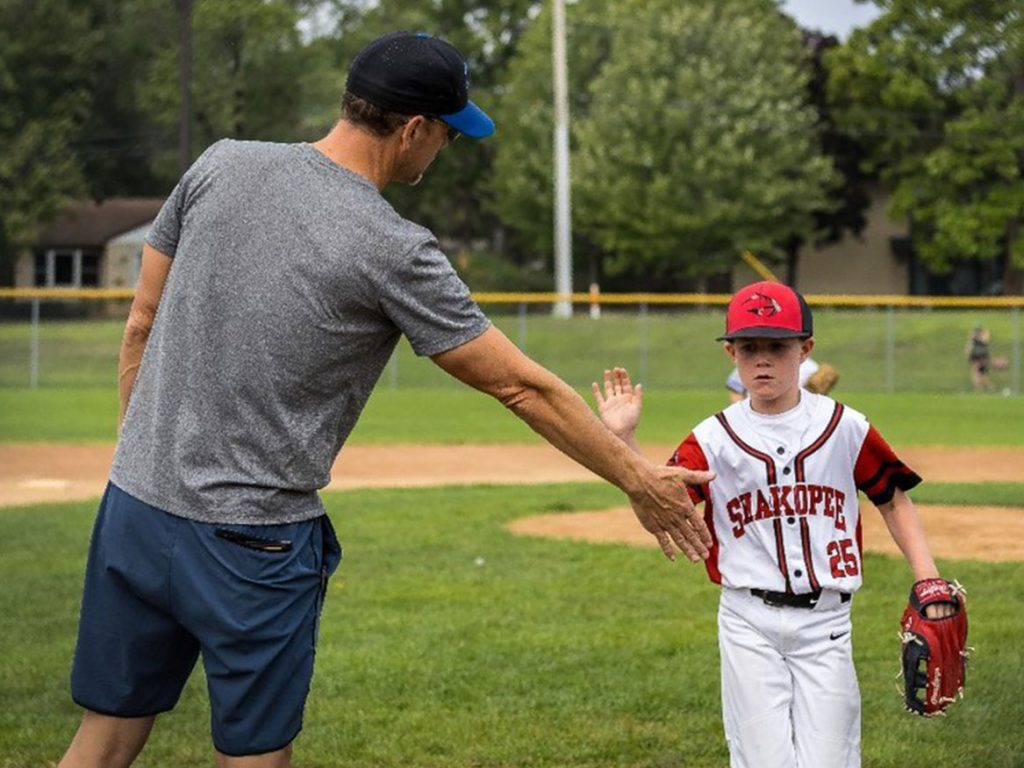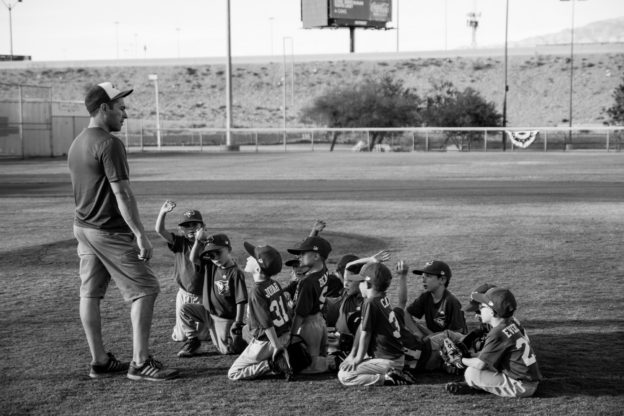Volunteering to coach your child’s baseball team can be one of the most rewarding experiences you’ll ever have. You get to spend quality time with your son, help young athletes develop skills, and contribute to their love of the game. However, many first-time coaches—especially parent volunteers—fall into common pitfalls that can hinder their players’ growth and enjoyment. Here’s a breakdown of some frequent youth baseball coaching mistakes and practical ways to avoid or correct them.
1. Overemphasizing Winning Instead of Development
The Mistake: Many youth coaches focus too much on winning games rather than on developing players’ skills. This pressure can make kids anxious, decrease their enjoyment, and stunt their long-term growth.
How to Avoid It:
- Emphasize effort and improvement rather than the scoreboard.
- Rotate players in different positions to help them develop well-rounded skills.
- Celebrate small victories like a well-executed bunt, a heads-up defensive play, or a player hustling to first base.
- Encourage learning moments by framing mistakes as opportunities for growth.
How to Correct It: If you’ve already created a win-at-all-costs environment, acknowledge the shift by having an open conversation with your team and parents. Let them know that development is now the priority and reinforce this in practices by focusing on skill-building and situational baseball drills rather than just scrimmaging to win.

2. Playing Favorites (Even Unintentionally)
The Mistake: Parent coaches sometimes (often unconsciously) favor their child by giving them the best positions, batting them at the top of the lineup, or offering them more playing time than other kids.
How to Avoid It:
- Create a fair and transparent system for lineups and positions.
- Keep track of playing time to ensure all kids are getting opportunities.
- Ask an assistant coach to help manage substitutions and offer a neutral perspective.
- Treat your child the same way as every other player—hold them accountable and coach them with the same tone and expectations.
How to Correct It: If other parents or players have voiced concerns, acknowledge the issue and make a change. Start rotating positions and allow different players opportunities in key spots. Openly communicate your commitment to fairness and let your actions speak for themselves.
3. Failing to Keep Practices Engaging
The Mistake: Some coaches run practices that are too long, too repetitive, or poorly structured, leading to bored and disengaged players.
How to Avoid It:
- Keep practices efficient (60-90 minutes for younger teams).
- Break the practice into segments: warm-up, drills, game situations, and a fun activity to end.
- Use station-based drills to keep kids moving rather than waiting in line.
- Incorporate competitive mini-games like relay throws or base-running races.
How to Correct It: If players seem uninterested or disengaged, switch things up. Introduce new drills, reduce downtime, and add elements of fun competition. Ask your players what drills they enjoy most and build practices around those elements.
4. Overloading Kids with Information
The Mistake: A common error is trying to teach too much at once. Overloading young players with complex mechanics or strategy can leave them confused and frustrated.
How to Avoid It:
- Focus on one or two key points per practice.
- Use simple and clear instructions.
- Show rather than tell—demonstrations are often more effective than long explanations.
- Reinforce learning with repetition rather than throwing too much new information at players in a single session.
How to Correct It: If you’ve been giving too much information at once, simplify your coaching. Start focusing on one fundamental at a time and ensure players master it before moving to the next.
5. Neglecting Fundamentals
The Mistake: Coaches sometimes assume kids know the basics, skipping over fundamental skills like throwing mechanics, footwork, and proper batting stances.
How to Avoid It:
- Dedicate time each practice to basic skills, no matter the age group.
- Use progression drills that build on each other.
- Prioritize throwing accuracy and proper fielding form before worrying about arm strength or power hitting.
- Constantly reinforce correct techniques in a positive way.
How to Correct It: If players are struggling with basics, go back to square one. Reinforce fundamentals in warm-ups and drills. Even experienced players benefit from continuous reinforcement of the basics.
6. Poor Communication with Parents and Players
The Mistake: Not setting clear expectations for parents and players can lead to confusion, frustration, and conflicts.
How to Avoid It:
- Hold a preseason meeting to outline your coaching philosophy, team rules, and expectations.
- Keep parents informed with regular emails or group messages.
- Encourage open communication and be approachable for questions or concerns.
- Clearly define playing time policies to prevent misunderstandings.
How to Correct It: If you’ve had communication breakdowns, start fresh by addressing concerns directly. Establish a more structured communication approach and ensure parents feel heard and involved.
7. Forgetting the Importance of Fun
The Mistake: Some coaches take the game too seriously, making it feel more like a job than an enjoyable experience for the kids.
How to Avoid It:
- Remember that youth baseball should be fun first and foremost.
- Incorporate games, challenges, and team-building activities into practice.
- Celebrate individual and team achievements, both big and small.
- Encourage laughter and enjoyment during games and practices.
How to Correct It: If players seem stressed or unmotivated, lighten the atmosphere. Create team traditions, let kids have a say in practice activities, and emphasize the love of the game rather than just performance.

Build a Passion for the Game
Coaching youth baseball is about much more than teaching kids how to swing a bat or throw a strike—it’s about building confidence, teamwork, and a lifelong passion for the game. By avoiding these common mistakes and making intentional adjustments, you can create a positive and rewarding experience for your players, your team’s parents, and yourself. Remember, the goal is to develop young athletes while making memories that last a lifetime.






